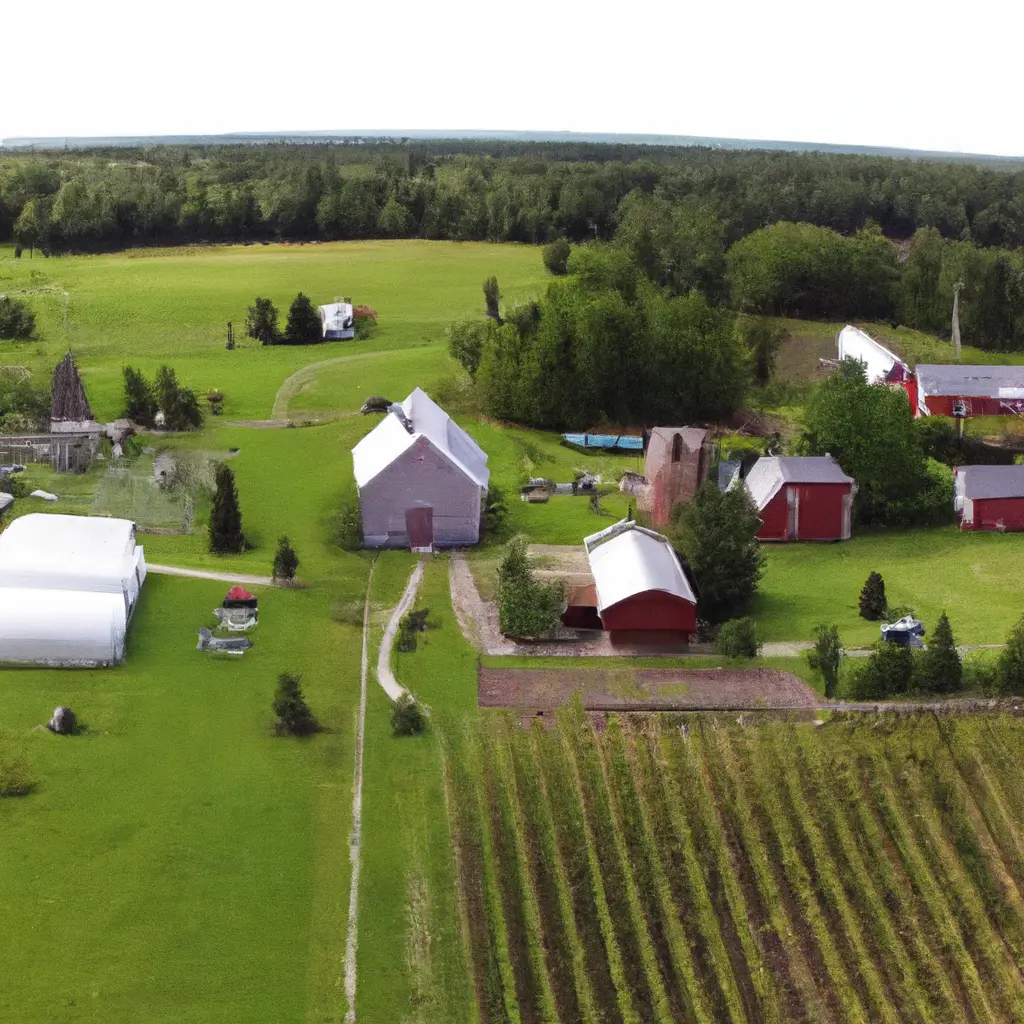White Hood Winery: The Taste of True Door County - Door County Pulse

At the Whitecap Winery, located in Ellison Bay, a large map of eastern Wisconsin hung on the wall, depicting the AVA (American Viticultural Area) Wisconsin Ledge - an officially recognized wine region. All the wineries in the area were marked on the map. When Don Grass pointed to the map, my eyes instantly focused on the top part, where I was looking for his winery - the northernmost in the region. Standing in a small room that served as a production, storage, bottling, and tasting area, I already had the theme for the article I was going to write: Whitecap Winery - the smallest and northernmost winery in Wisconsin Ledge.
When Don pointed to the map, I noticed another interesting detail.
The theme of my article has changed: Whitecap Winery, where all the wines are produced exclusively from their own vineyards. Don also wanted to emphasize that all his wines from his own vineyards are dry or semi-dry. He addressed the main question that prompted me to embark on this adventure: can a winery in Dor County produce quality wines using only grapes from its own vineyard? The only way to check the answer is to taste the wine, and Don was ready to provide the evidence.
I noticed that quality winemakers always insist that you try their creations. Don poured me some wine for tasting, explaining the essence of each one as he filled three glasses.
He started with Petit Verdot, a light, fruity, dry red wine with soft, gentle tannins. A few months ago, I tried Petit Verdot from the Parallel 44 winery, and it reminded me of a good Pinot Noir. The Whitecap version evoked the same comparison for me. Pinot Noir is a grape variety with a thin skin, used to produce top-quality wine in places like Burgundy in France and the Willamette Valley in Oregon. Petit Verdot was the county of Door's answer to that.
The second wine was St. Pepin, a white grape variety grown in most vineyards in the region. White grape varieties cultivated in a cold climate typically have high aromatic qualities and floral notes. Standard wines made from such grapes often retain some sugar to balance acidity. Don challenged this stereotype and created a white wine reminiscent of a dry Riesling from Germany that I tried last week. The first thing I noticed was the acidity, which gradually softened and became more balanced on the palate. St.




In the production-storage-bottling room, Don's wife, Lynn, joined us and made sure I got the full picture of their small family winery, which produces excellent wines from their vineyards using sustainable practices. Don and Lynn strive to make wines only from grapes grown on their vineyard, which they showed me during the tasting. Lynn raises Nigerian dwarf goats that provide all the necessary fertilization for Don's grapes. The vineyard consists of two acres of cool-climate grapes and produces just under 200 cases of wine each year. Don told me that they could produce more if he used commercial herbicides and pesticides, but for him, sustainability and environmental safety are more important than production. He shared a quote that his father often said about any form of agriculture: it all starts with the soil. Don bases his farming practices on his father's words. As we walked past the vineyards, Don spoke about his relationship with the late Bob Lauterbach from Lautenbach's Orchard, whom Don considers his mentor. Both men shared the same idea of preserving the "True Door County" in their products and believed that true local flavors can only be created from local fruits. The story of the Whitecap Winery in Door County began with Don's love for growing grapes. Dedicating time and effort to his vineyard led him to create grape varieties that can be used to produce quality wine. Winemaking was the last part of this story. Don concluded our conversation by explaining how much work goes into turning Door County soil into outstanding wine, even for the smallest winery in the county, and said he couldn't manage without the help of friends and family supporting his efforts, especially during harvest time. Don and Lynn lead a lifestyle that I envy, based on family, commitment, respect for the environment, and creating something unique and wonderful. I look forward to the next opportunity to taste more authentic wine from Door County.
We will find property in France for you
- 🔸 Reliable new buildings and ready-made apartments
- 🔸 Without commissions and intermediaries
- 🔸 Online display and remote transaction
Our managers will help you choose a property
Liliya
International Real Estate Consultant

Subscribe to the newsletter from Hatamatata.com!
Subscribe to the newsletter from Hatamatata.com!
Popular Posts
We will find property in France for you
- 🔸 Reliable new buildings and ready-made apartments
- 🔸 Without commissions and intermediaries
- 🔸 Online display and remote transaction
Our managers will help you choose a property
Liliya
International Real Estate Consultant

Subscribe to the newsletter from Hatamatata.com!
Subscribe to the newsletter from Hatamatata.com!
I agree to the processing of personal data and confidentiality rules of Hatamatata
Need advice on your situation?
Get a free consultation on purchasing real estate overseas. We’ll discuss your goals, suggest the best strategies and countries, and explain how to complete the purchase step by step. You’ll get clear answers to all your questions about buying, investing, and relocating abroad.


Irina Nikolaeva
Sales Director, HataMatata





